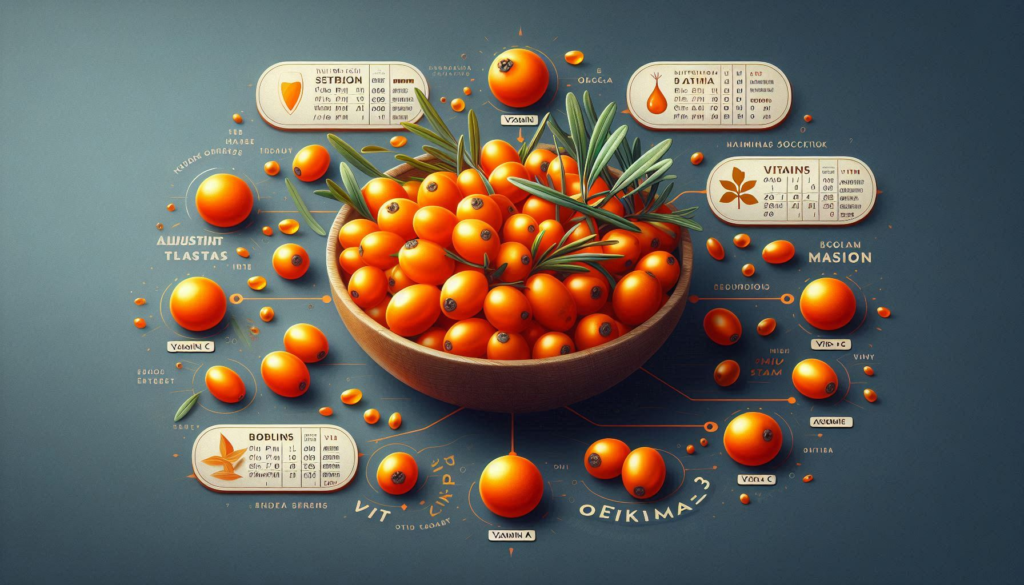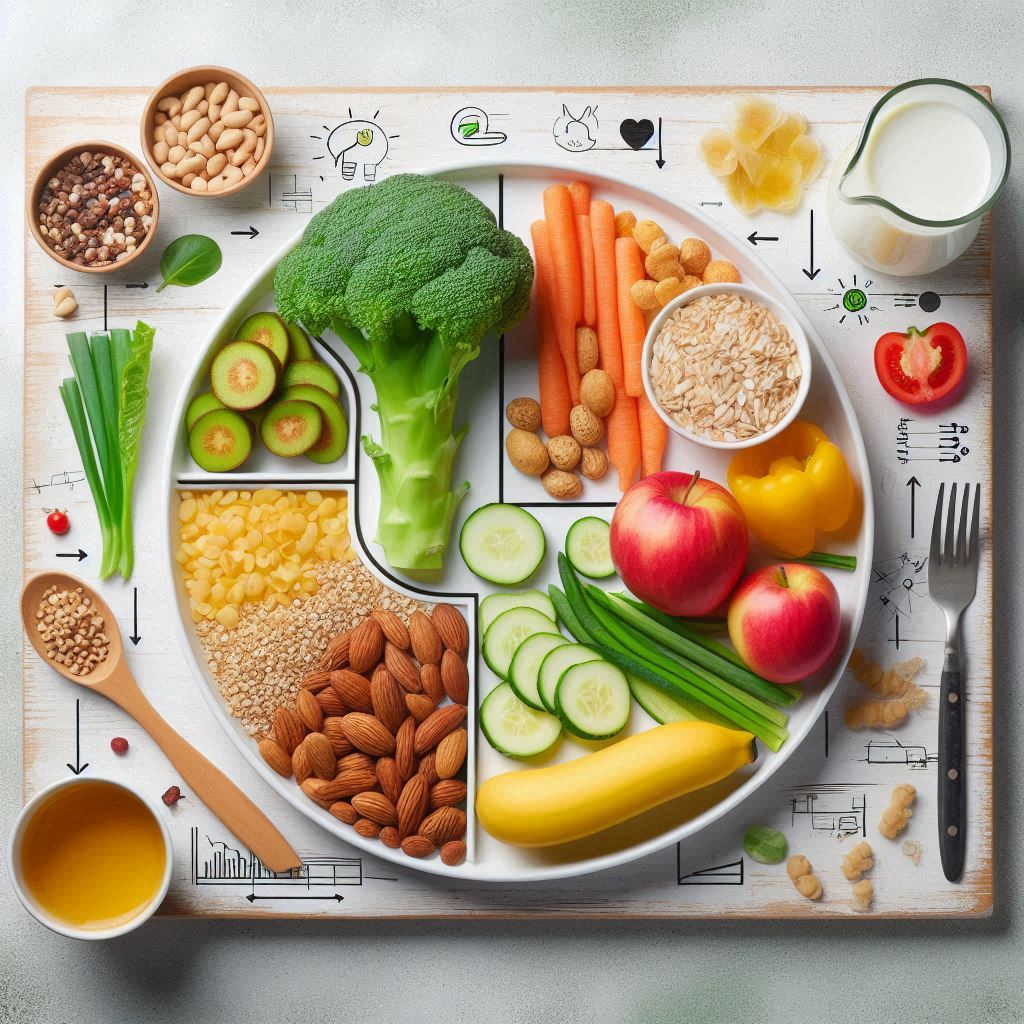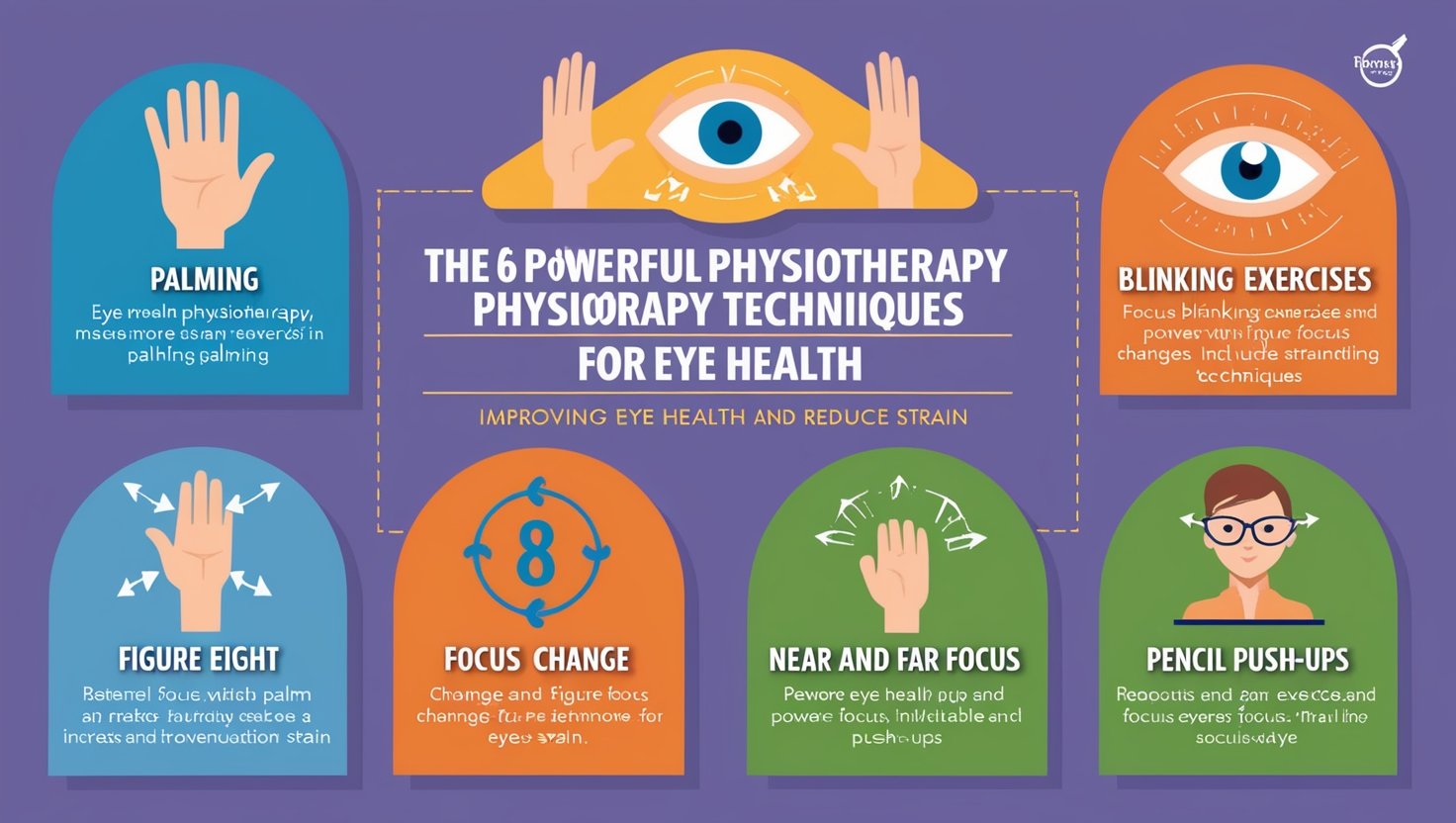
“10 Amazing Health Boosts from Seabuckthorn”
“10 Amazing Health Boosts from Seabuckthorn”
“Discover 10 amazing Health Boosts of Seabuckthorn and how this powerful plant can enhance your well-being. Learn about its nutritional value and uses.”

Introduction
Brief Overview of Seabuckthorn
Seabuckthorn (Hippophae rhamnoides) is a hardy shrub native to Europe and Asia. It produces bright orange berries that are packed with nutrients and have been used for centuries in traditional medicine. The berries, leaves, and seeds of seabuckthorn are all utilized for their health benefits, making it a versatile and valuable plant.
Importance of Seabuckthorn in Traditional and Modern Medicine
In traditional medicine, seabuckthorn has been used to treat a variety of ailments, including digestive issues, skin conditions, and respiratory problems. Its use dates back to ancient Greece and Tibet, where it was valued for its healing properties. In modern medicine, seabuckthorn is recognized for its rich nutritional profile and potential health benefits, leading to its inclusion in dietary supplements, skincare products, and functional foods.

Read also: 7 Creative Skills for a Sharp Mind
Health Boost 1: Rich in Nutrients
Overview of the Vitamins and Minerals in Seabuckthorn
Seabuckthorn is a nutritional powerhouse, containing a wide range of vitamins and minerals essential for overall health. Some of the key nutrients found in seabuckthorn include:
- Vitamin C: Known for its immune-boosting properties and role in collagen synthesis.
- Vitamin A: Important for vision, immune function, and skin health.
- Vitamin E: Acts as an antioxidant, protecting cells from damage.
- Vitamin K: Essential for blood clotting and bone health.
- B Vitamins: Support energy production and brain function.
- Omega-3, 6, 7, and 9 Fatty Acids: Promote heart health and skin hydration.
- Minerals: Including calcium, magnesium, potassium, and iron.
Benefits of These Nutrients for Overall Health
The diverse range of nutrients in seabuckthorn contributes to its numerous health benefits. Vitamin C and E act as antioxidants, protecting the body from oxidative stress and reducing the risk of chronic diseases. Vitamin A supports eye health and immune function, while B vitamins aid in energy production and cognitive function. The presence of essential fatty acids helps maintain heart health, reduce inflammation, and promote healthy skin. Overall, the nutrient-rich profile of seabuckthorn makes it a valuable addition to a balanced diet.
Health Boost 2: Supports Immune System
How Seabuckthorn Enhances Immune Function
Seabuckthorn is known for its immune-boosting properties, primarily due to its high content of vitamins and antioxidants.
Vitamin C, in particular, plays a crucial role in enhancing immune function by stimulating the production of white blood cells and improving their ability to fight infections.
Additionally, the antioxidants in Seabuckthorn help protect immune cells from damage caused by free radicals.
Key Immune-Boosting Compounds in Seabuckthorn
Several compounds in Seabuckthorn contribute to its immune-boosting effects:
- Vitamin C: Enhances the production and function of white blood cells.
- Flavonoids: Plant compounds with antioxidant properties that support immune health.
- Carotenoids: Including beta-carotene, which is converted to vitamin A in the body and supports immune function.
- Omega Fatty Acids: Help reduce inflammation and support overall immune health.
By incorporating Seabuckthorn into your diet, you can benefit from these immune-boosting compounds and support your body’s natural defenses.
Health Boost 3: Promotes Skin Health
Benefits of Seabuckthorn for Skin Hydration and Repair
Seabuckthorn is highly beneficial for skin health due to its rich content of vitamins, antioxidants, and essential fatty acids. These nutrients help hydrate the skin, promote cell regeneration, and repair damaged skin. Vitamin E and omega-7 fatty acids, in particular, are known for their skin-nourishing properties, helping to maintain skin elasticity and reduce the appearance of wrinkles.
Use of Seabuckthorn Oil in Skincare Products
Seabuckthorn oil is a popular ingredient in many skincare products due to its ability to hydrate and repair the skin. It is often used in creams, serums, and lotions to provide deep moisturization and promote a healthy, glowing complexion. The oil’s anti-inflammatory properties also make it effective in soothing irritated skin and reducing redness.
Health Boost 4: Aids in Digestion
Role of Seabuckthorn in Improving Digestive Health
Seabuckthorn supports digestive health by promoting the balance of gut flora and reducing inflammation in the digestive tract. The high fiber content in seabuckthorn helps regulate bowel movements and prevent constipation. Additionally, the plant’s anti-inflammatory properties can help alleviate symptoms of digestive disorders such as irritable bowel syndrome (IBS) and inflammatory bowel disease (IBD).
Compounds in Seabuckthorn That Support Gut Health
Several compounds in seabuckthorn contribute to its digestive health benefits:
- Fiber: Promotes regular bowel movements and supports gut health.
- Flavonoids: Help reduce inflammation in the digestive tract.
- Omega Fatty Acids: Support the integrity of the gut lining and reduce inflammation.
Including seabuckthorn in your diet can help improve digestive health and support overall well-being.

Health Boost 5: Anti-Inflammatory Properties
Explanation of Seabuckthorn’s Anti-Inflammatory Effects
Seabuckthorn is known for its potent anti-inflammatory properties, which are primarily attributed to its high content of flavonoids, omega fatty acids, and other bioactive compounds. These substances help reduce inflammation by inhibiting the production of inflammatory cytokines and enzymes. The presence of omega-3 and omega-7 fatty acids in seabuckthorn also contributes to its anti-inflammatory effects, as these fatty acids are known to reduce inflammation and promote healing.
Conditions That Can Benefit from Seabuckthorn’s Anti-Inflammatory Properties
Several conditions can benefit from the anti-inflammatory properties of seabuckthorn, including:
- Arthritis: Seabuckthorn can help reduce joint inflammation and pain associated with arthritis.
- Inflammatory Bowel Disease (IBD): The anti-inflammatory effects of seabuckthorn can alleviate symptoms of IBD, such as Crohn’s disease and ulcerative colitis.
- Skin Conditions: Seabuckthorn can soothe inflammatory skin conditions like eczema, psoriasis, and acne.
- Cardiovascular Diseases: By reducing inflammation, seabuckthorn can help lower the risk of heart disease and improve overall cardiovascular health.
Health Boost 6: Rich in Antioxidants
Types of Antioxidants Found in Seabuckthorn
Seabuckthorn is rich in various antioxidants, including:
- Vitamin C: A powerful antioxidant that protects cells from damage and supports the immune system.
- Vitamin E: Protects cell membranes from oxidative damage.
- Carotenoids: Including beta-carotene, which is converted to vitamin A in the body and supports vision and immune function.
- Flavonoids: Plant compounds with strong antioxidant properties that protect against oxidative stress.
Benefits of Antioxidants for Preventing Chronic Diseases
Antioxidants play a crucial role in preventing chronic diseases by neutralizing free radicals and reducing oxidative stress. The antioxidants in seabuckthorn can help:
- Prevent Cancer: By protecting cells from DNA damage, antioxidants can reduce the risk of cancer.
- Reduce Heart Disease Risk: Antioxidants help prevent the oxidation of LDL cholesterol, which is a key factor in the development of heart disease.
- Support Brain Health: Antioxidants protect brain cells from oxidative damage, reducing the risk of neurodegenerative diseases like Alzheimer’s and Parkinson’s.
- Enhance Skin Health: Antioxidants protect the skin from UV damage and promote a healthy, youthful complexion.
Health Boost 7: Supports Heart Health
How Seabuckthorn Contributes to Cardiovascular Health
Seabuckthorn contributes to cardiovascular health through its rich content of essential fatty acids, antioxidants, and vitamins. These nutrients help reduce inflammation, lower cholesterol levels, and improve blood vessel function. The presence of omega-3 and omega-7 fatty acids in seabuckthorn is particularly beneficial for heart health, as these fatty acids help reduce triglycerides, lower blood pressure, and prevent the formation of arterial plaques.
Key Nutrients in Seabuckthorn That Support Heart Function
Several key nutrients in seabuckthorn support heart function, including:
- Omega-3 Fatty Acids: Help reduce inflammation, lower triglycerides, and improve heart health.
- Omega-7 Fatty Acids: Support healthy cholesterol levels and improve blood vessel function.
- Vitamin C: Strengthens blood vessels and supports overall cardiovascular health.
- Flavonoids: Improve blood flow and reduce the risk of heart disease by protecting blood vessels from oxidative damage.
By incorporating seabuckthorn into your diet, you can support your cardiovascular health and reduce the risk of heart disease.

Health Boost 8: Enhances Eye Health
Benefits of Seabuckthorn for Vision and Eye Health
Seabuckthorn is highly beneficial for eye health due to its rich content of vitamins and antioxidants. The presence of vitamin A and carotenoids in seabuckthorn helps protect the eyes from oxidative stress and supports overall vision health. These nutrients are essential for maintaining good eyesight and preventing age-related eye conditions such as macular degeneration and cataracts.
Nutrients in Seabuckthorn That Support Eye Function
Several key nutrients in seabuckthorn contribute to its eye health benefits:
- Vitamin A: Essential for maintaining healthy vision and preventing night blindness.
- Carotenoids: Including beta-carotene, which is converted to vitamin A in the body and supports eye health.
- Vitamin C: Protects the eyes from oxidative damage and supports the health of blood vessels in the eyes.
- Vitamin E: Acts as an antioxidant, protecting eye cells from damage.
By incorporating seabuckthorn into your diet, you can support your eye health and maintain good vision.
Health Boost 9: Promotes Weight Management
Role of Seabuckthorn in Supporting Healthy Weight
Seabuckthorn can play a significant role in supporting healthy weight management. Its high fiber content helps promote a feeling of fullness, reducing the likelihood of overeating. Additionally, seabuckthorn contains compounds that can help regulate metabolism and support fat reduction.
How Seabuckthorn Aids in Metabolism and Fat Reduction
Seabuckthorn aids in weight management through several mechanisms:
- Fiber: Promotes satiety and helps control appetite, reducing overall calorie intake.
- Omega-7 Fatty Acids: Help regulate metabolism and reduce fat accumulation.
- Antioxidants: Support metabolic health by reducing oxidative stress and inflammation, which can contribute to weight gain.
Including seabuckthorn in your diet can help you achieve and maintain a healthy weight in a natural and sustainable way.
Health Boost 10: Supports Mental Health
Benefits of Seabuckthorn for Brain Function and Mood
Seabuckthorn is beneficial for mental health due to its rich content of omega fatty acids, vitamins, and antioxidants. These nutrients support brain function, improve mood, and protect against cognitive decline. Omega-3 and omega-7 fatty acids, in particular, are known for their positive effects on brain health and emotional well-being.
Key Compounds in Seabuckthorn That Support Mental Well-Being
Several key compounds in seabuckthorn contribute to its mental health benefits:
- Omega-3 Fatty Acids: Support brain function, improve mood, and reduce symptoms of depression and anxiety.
- Omega-7 Fatty Acids: Promote cognitive health and protect against neurodegenerative diseases.
- Antioxidants: Protect brain cells from oxidative damage and support overall brain health.
- B Vitamins: Aid in energy production and support cognitive function.
By incorporating seabuckthorn into your diet, you can support your mental health and enhance your overall well-being.
How to Incorporate Seabuckthorn into Your Diet
Tips for Adding Seabuckthorn to Meals and Beverages
Seabuckthorn can be a versatile addition to your diet. Here are some simple and delicious ways to incorporate it:
- Smoothies: Add seabuckthorn berries or juice to your morning smoothie for a nutrient boost.
- Teas: Brew seabuckthorn leaves or use seabuckthorn juice as a base for herbal teas.
- Salads: Sprinkle fresh or dried seabuckthorn berries over salads for a tangy flavor.
- Yogurt and Oatmeal: Mix seabuckthorn berries or juice into yogurt or oatmeal for a nutritious breakfast.
- Sauces and Dressings: Use seabuckthorn juice in salad dressings or sauces for a unique twist.
- Baked Goods: Incorporate seabuckthorn berries into muffins, bread, or other baked goods.
Recommended Dosage and Forms of Seabuckthorn Supplements
Seabuckthorn is available in various forms, including berries, juice, oil, and supplements. Here are some general dosage recommendations:
- Berries: Consume a handful (about 1/4 cup) of fresh or dried seabuckthorn berries daily.
- Juice: Drink 1-2 tablespoons of seabuckthorn juice per day.
- Oil: Take 1-2 teaspoons of seabuckthorn oil daily, either directly or mixed into food.
- Supplements: Follow the dosage instructions on the supplement packaging, typically 500-1000 mg per day.
Precautions and Potential Side Effects
Safety Tips for Consuming Seabuckthorn
While seabuckthorn is generally safe for most people, it’s important to follow these safety tips:
- Buy from Reputable Sources: Ensure you purchase seabuckthorn products from reputable suppliers to avoid contamination.
- Start with Small Amounts: If you’re new to seabuckthorn, start with small amounts to see how your body reacts.
- Consult a Healthcare Provider: If you have any underlying health conditions or are pregnant or breastfeeding, consult your healthcare provider before adding seabuckthorn to your diet.
Potential Side Effects and How to Mitigate Them
Some individuals may experience mild side effects from consuming seabuckthorn, such as:
- Digestive Discomfort: Seabuckthorn’s high fiber content may cause digestive discomfort in some people. Start with small amounts and gradually increase your intake.
- Allergic Reactions: Although rare, some individuals may be allergic to seabuckthorn. If you experience any allergic reactions, such as itching, swelling, or difficulty breathing, discontinue use and seek medical advice.
Conclusion
Recap of the Health Benefits of Seabuckthorn
Seabuckthorn offers numerous health benefits, including being rich in nutrients, supporting the immune system, promoting skin health, aiding digestion, providing anti-inflammatory properties, being rich in antioxidants, supporting heart health, enhancing eye health, promoting weight management, and supporting mental health.
Encouragement to Include Seabuckthorn in Your Diet
Incorporating seabuckthorn into your diet can significantly enhance your overall well-being. Whether you add it to your meals, beverages, or take it as a supplement, seabuckthorn’s powerful health benefits make it a valuable addition to a healthy lifestyle. Start exploring the various ways to enjoy seabuckthorn and experience its remarkable health boosts.
What are the health benefits of seabuckthorn?
- Seabuckthorn offers numerous health benefits, including supporting the immune system, promoting skin health, aiding digestion, and providing anti-inflammatory and antioxidant properties.
What nutrients are found in seabuckthorn?
- Seabuckthorn is rich in vitamins A, C, E, and K, as well as essential fatty acids, antioxidants, and minerals like calcium, magnesium, and potassium.
How does seabuckthorn support the immune system?
- Seabuckthorn contains compounds like flavonoids and vitamin C that enhance immune function and help protect against infections.
Can seabuckthorn improve skin health?
- Yes, seabuckthorn is known for its skin benefits, including hydration, repair, and protection against UV damage. It is commonly used in skincare products.
Is seabuckthorn good for digestion?
- Seabuckthorn supports digestive health by promoting gut flora balance and reducing inflammation in the digestive tract.
What are the anti-inflammatory properties of seabuckthorn?
- Seabuckthorn contains anti-inflammatory compounds that can help reduce inflammation and alleviate symptoms of conditions like arthritis and inflammatory bowel disease.
How does seabuckthorn support heart health?
- Seabuckthorn contributes to cardiovascular health by providing essential fatty acids, antioxidants, and vitamins that support heart function and reduce cholesterol levels.
Can seabuckthorn improve eye health?
- Yes, seabuckthorn is beneficial for eye health due to its high content of vitamins A and E, which support vision and protect against age-related eye conditions.
How does seabuckthorn aid in weight management?
- Seabuckthorn supports healthy weight by boosting metabolism, reducing fat accumulation, and promoting satiety.
Are there any side effects of consuming seabuckthorn?
- While seabuckthorn is generally safe, some individuals may experience mild side effects like digestive discomfort. It is important to follow recommended dosages and consult with a healthcare provider if you have any concerns.





6 Comments
Pingback:
Pingback:
Pingback:
Pingback:
Pingback:
Pingback: